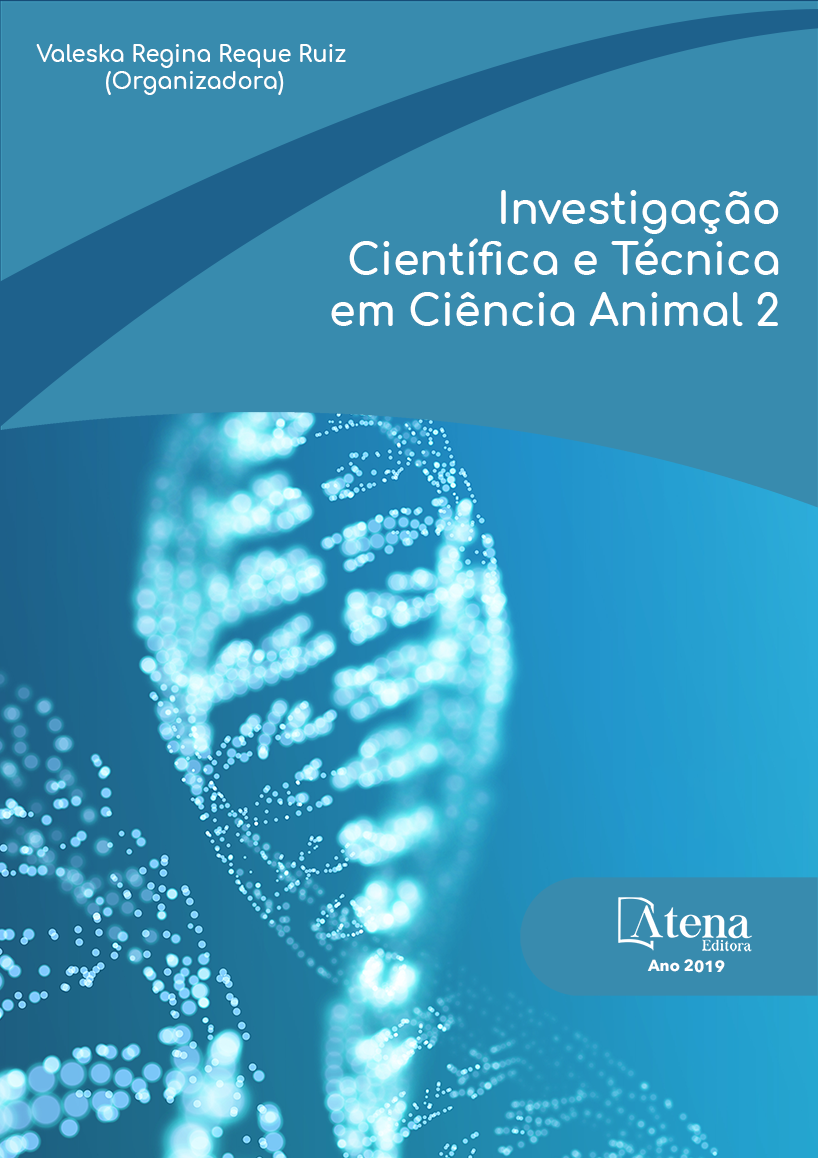
AVALIAÇÃO DO CONFORTO TÉRMICO E PESO CORPORAL DE GUINÉ (Numida meleagris), ALOJADOS NA FAZENDA ESCOLA DO CENTRO UNIVERSITÁRIO CESMAC
O Capote, Galinha D’Angola, Guiné
ou Pintada são sinônimos empregados para
designar a ave Numida meleagris. Desde a
década de 80 a carne de capote foi considerada
como uma carne gourmet na Europa e nos
Estados Unidos, contudo nas savanas africanas
já era bastante consumida.O presente estudo
teve inicio após aprovação pelo CEUA, onde
foram adquiridos 100 pintainhos de capote de
genética francesa e alojados em galpão com
círculo de proteção e campânula com lâmpada
de infravermelho, posicionada a 1,15 m da
cama, para aquecimento das aves. As dietas
fornecidas aos animais foram formuladas com
base nas exigências nutricionais da espécie
para cada categoria. Inicialmente foi fornecido
ração comercial para fase inicial nos dois
primeiros meses, e a partir do terceiro mês
foi formulada uma ração utilizando farelo de
soja, milho triturado e núcleo para ração de
aves crescimento. Após sessenta dias de vida
os animais foram pesados a cada quinze dias
utilizando balança digital portátil de mão com
capacidade para até 50Kg. Após 4 meses, nas
condições de confinamento as quais foram
submetidas os guinés desse estudo 100% por
cento dos animais obtiveram peso superior a
1300g. E com exceção das condições climáticas
adversas, os alojamentos ofereceram conforto
térmico adequado.
AVALIAÇÃO DO CONFORTO TÉRMICO E PESO CORPORAL DE GUINÉ (Numida meleagris), ALOJADOS NA FAZENDA ESCOLA DO CENTRO UNIVERSITÁRIO CESMAC
-
DOI: 10.22533/at.ed.2631912095
-
Palavras-chave: Termorregulação, Pesagem, Aves domésticas
-
Keywords: Thermoregulation, Weighing, Poultry
-
Abstract:
The Capote, D’Angola Chicken, Guinea or Pintada are synonyms used to
designate the bird Numida meleagris. Since the decade of 80 the meat of Capote has
been regarded as a gourmet meat in Europe and the United States, but in the African
savannas it was already widely consumed. The present study began after approval
by the CEUA, where 100 chicks from French genetics were acquired and housed in a
shed with a circle of protection and a bell with infrared lamp, positioned at 1.15 m from
the bed, for heating the birds. The diets provided to the animals were formulated based
on the nutritional requirements of the species for each category. Initially, commercial
ration was provided for initial phase in the first two months, and from the third month
a ration was formulated using soybean meal, crushed corn and core for poultry feed
growth. After 60 days of life The animals were weighed every fifteen days using
portable digital hand scale with capacity up to 50Kg. After 4 months, in the confinement
conditions which were subjected to the Guineas of this study 100% of the animals had
weight greater than 1300g. And with the exception of adverse weather conditions, the
accommodation offered adequate thermal comfort.
-
Número de páginas: 15
- Valesca Barreto Luz


